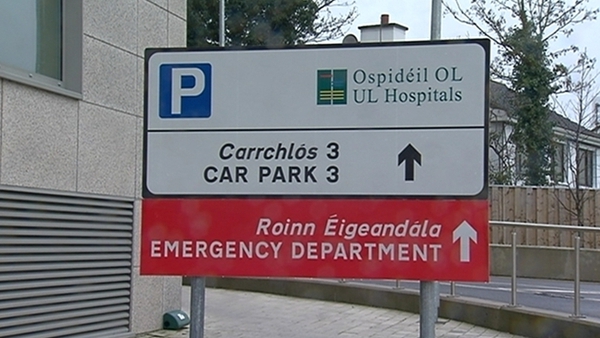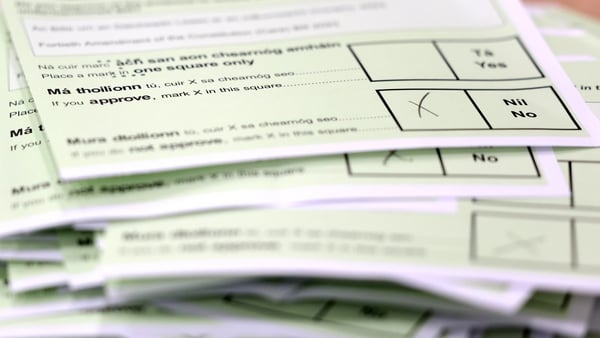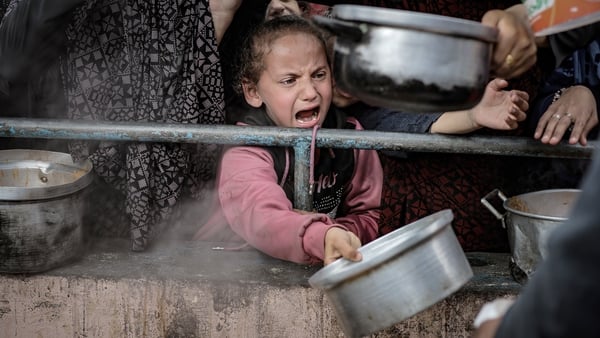"Indigenous industry is the key to the backbone of most rural towns," said Jerry Maloney, Enterprise Ireland’s Mid West director.
He is standing in the centre of Nenagh, overlooked by Nenagh Castle - a 13th century castle keep - preparing for a Morning Ireland interview.
"Nenagh is lucky," he said. "It has four or five large indigenous employers. They started in the area and continue to be in the area."
The local economy in the north Tipperary town, which has a population of 8,000, is largely agricultural, with dairy and beef employing hundreds in factories and taking product from thousands of farmers in the hinterland.
We need your consent to load this SoundCloud contentWe use SoundCloud to manage extra content that can set cookies on your device and collect data about your activity. Please review their details and accept them to load the content.Manage Preferences
In the 1980s, the town thrived with a busy mining operation in the nearby village of Silvermines. The following decade saw multinational pharmaceutical and manufacturing companies employ hundreds.
Nowadays, those industries have long since disappeared and in their place are local companies employing hundreds.
"The likes of Carey Glass, Tippo International and Abbey Machinery are companies that have successfully grown in the area and continue to expand and grow in international markets over the last number of years," Mr Maloney said.
Carey Glass, Tippo International - a furniture manufacturing company - Abbey Machinery, and beef and dairy processors employ over 1,000 jobs between them in the town and its environs. For many of these companies Britain is where their products are exported to.
"The outcome of Brexit is not certain," he said, when asked about these companies exposure to Brexit.
"One thing is clear though, businesses could face some serious challenges. It is important to prepare. For the last two years we have worked with companies to prepare for Brexit. We look at planning. We look at innovation. We look at competing and diversifying in the market place. People need to start taking action now.
"Exports to the UK are about 34 % of our overall total. We are looking at encouraging people to diversify and to look in to other markets," added Mr Maloney.
Carey Glass - with its impressive architectural glass facade on the Limerick side of Nenagh - is successfully preparing for Brexit.
A family operation, set up by three brothers in 1964, it employs 480 in Nenagh and a further 320 in its sister plants in Northern Ireland and Britain.
It is a cornerstone to Nenagh’s success as a thriving town and its payroll pushes €15 million into the local economy every year.
Carey Glass imports raw glass to process in Ireland and exports it to sell in Britain and other parts of the world.
It has put in place strategies to deal with Brexit. It already has concentrated part of its operation targeting specialised architectural projects in the United States.
Carey Glass runs its own transport company to transport its glass. It has concerns on how it will manage border crossings if there is a hard Brexit. VAT, currency fluctuation and supply chain are other challenges the company is prepared for.
A kilometre from the Carey Glass facility, cows graze in green pastures on the outskirts of Nenagh.
It is a reminder that agriculture is the traditional back bone of local businesses here.
ABP meat processors employs 351 people and takes beef from 2,000 farms.
Michael Harty - CEO of Central Auctions, which runs marts in Nenagh, Birr and Roscrea - said beef is crucial to the local economy. He said there is huge concern over Brexit. Tarriffs, a potential hard border and imports from Brazil would have a negative impact.
Next door to the mart is Nenagh creamery.
A building crane overlooks the large blue and white industrial dairy structure. Arrabawn is building a new €30 million processing facility there. Since dairy quotas were abolished in 2015 the company has grown.
The Arrabawn plant in Nenagh employs 180 people, but the company has 450 jobs nationally.
Arrabawn CEO Conor Ryan knows there are challenges with Brexit.
His company is working with Enterprise Ireland to find alternative markets for 20-25% of its whey product which is exported to Britain. He is concerned about Brexit and said it could impact businesses in the town.
Enterprise Ireland said larger indigenous businesses are preparing for the practicalities of Brexit. However, it has concerns that smaller companies which do not have the same resources as larger ones are not prepared.
Mr Maloney said Enterprise Ireland has workshops to help these companies if they have not planned already.
"EI has a workshop in Dublin on March 14th and another one in Portlaoise on 20 March. If anyone has not been to a workshop we are focusing on three areas: Finance and currency management; strategy sourcing and customs and logistics.






